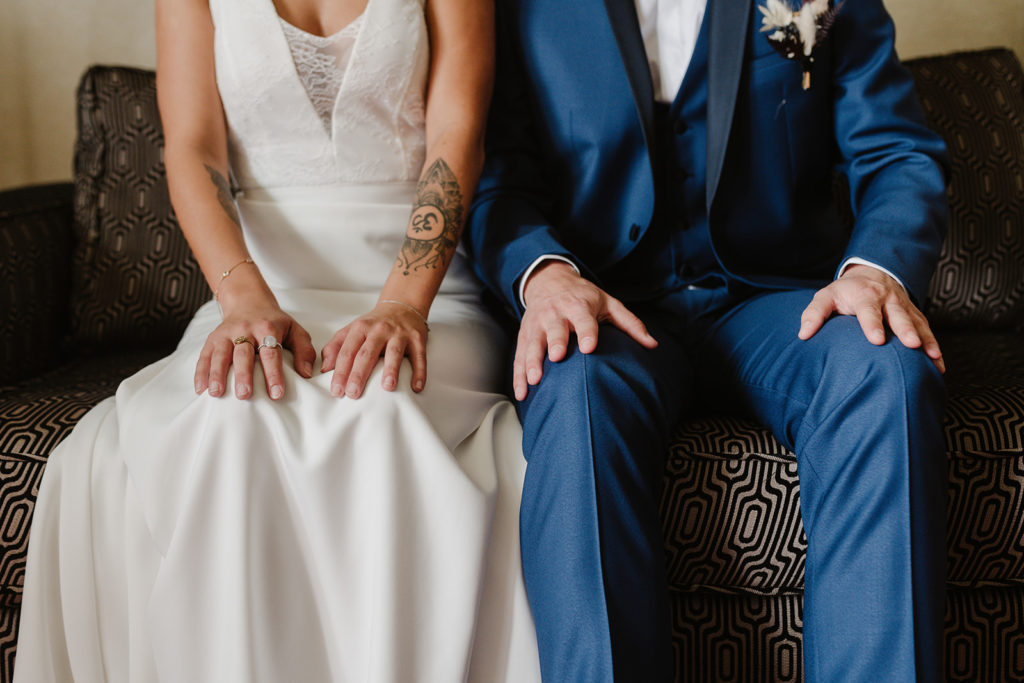How to Budget for Your Wedding Without the Stress
Budgeting isn’t easy, and let’s face it—it’s not the most fun part of wedding planning. But it’s essential, especially when you’re planning your wedding without professional assistance. I’ve compiled a few ideas that can help you get started—and maybe even enjoy the process.

In my experience as a wedding organizer, I’ve noticed that many couples struggle with discussing their budget during our first meeting. Whether they haven’t thought about it yet or feel intimidated by the question, this part of the conversation is often tough. However, the budget is one of the most critical aspects of wedding planning. It’s essential to make it realistic so you can determine what you can spend on different aspects of your day.
Where to Start When You’ve Never Done It Before?
I like to view the budget as a dynamic tool. Start with an estimate, then adjust it as needed. This way, you’ll have a clearer idea of what you can afford and what areas you may need to scale back or rethink.
If you’ve hired a professional planner, they can help you manage the budget. They’ll keep things accurate and coordinate with all the vendors involved, ensuring you don’t get carried away with expensive extras and that you stick to your original plan
What Should You Include in Your Budget?
Everything.
When planning your wedding on your own, you need to account for every detail. An easy way to do this is by using a simple Excel sheet.
This is a brainstorming exercise to do with your significant other, but you can also ask married friends for advice to ensure you don’t overlook any potential expenses.
As I mentioned earlier, the budget is a dynamic tool, so you’ll be able to adjust it as you confirm services.
How to Stick to the Budget?
This can be tricky, which is why it’s crucial to set a maximum budget upfront.
Your wedding day is an emotional event, and when emotions are involved, it’s easy to make decisions you’ll regret later. To stay on track and true to your vision, create a shortlist of non-negotiable items as a couple. For example, you might want a venue with a sea view or a top-tier DJ or band. Knowing your deal-breakers will make decision-making much easier.
…But How Do You Know What Your Deal-Breakers Are?
For some couples, the deal-breaker might be entertainment. They may prefer a 3-course meal instead of a 6-course one, focusing more on the band or DJ to keep guests entertained all night.
Others, like me, prioritize catering. Due to my professional background, I knew from the beginning that we wanted one of the best catering services, and it worked! Even years later, people still talk about the canapés.
Identifying what’s most important to you at the beginning of the planning process will help guide you throughout. It’s not an easy exercise, especially if you’re new to event planning, but it helps to reflect on past weddings or social events you’ve attended together. Think about what you liked—and what you didn’t. Sometimes it’s easier to know what you don’t want, and then you can take it from there.
Let’s Break It Down!
Every couple and every wedding is unique, but if you’re feeling a bit lost, the breakdown below might help you get started.
Before we dive into each category, remember that this is just an example, and you can adjust it as needed.
Venue 10%
The cost will vary depending on the venue you choose. In Switzerland, for example, lakeside venues with outdoor spaces tend to be more expensive. The same goes for destinations like the French Riviera or the Amalfi Coast. However, with some flexibility on dates, you can often negotiate a better deal. Avoiding high season or opting for a weekday instead of a Saturday can be a smart move.
Catering 30%
Personally, this is one of the most relevant breakdown items.
Catering is one of the most significant costs. You need to feel comfortable with your supplier and ask for transparency: what’s included in the menu? Does the open bar come with it? What about the cake? Is there a service charge or overtime fees?
Some venues have preferred suppliers, which can be helpful since they know the venue and may save you money.
Decoration 15%
Decoration can dramatically change the look and feel of your wedding, but it can also be a major expense. Some venues, like hotels, may offer wedding packages that include floral decorations.
Art de la Table 10%
You may not need to rent tableware, glasses, etc., depending on your caterer. But, based on my experience, catering companies usually only provide basic sets (often white). The devil is in the details—and those little touches can make all the difference.
Stationery 5%
This includes save-the-date cards, invitations, programs, and menus. Whether you go with printed materials or digital invitations, consider budgeting for a professional graphic designer to create the look you want.
Entertainment 20%
DJ or band? You’ll also want to include your photographer, videographer, and officiant in this category, if needed.
Others 10%
This category includes any other services tied to your decisions: transportation, guest gifts, insurance, security, etc.
One common mistake is forgetting about the “unknowns.” It’s normal to overlook some costs, especially if you’re planning a wedding on your own. Unexpected expenses often arise, so it’s wise to set aside some extra funds for last-minute surprises.
Creativity Is Not Limited by Budget
I love saying this to my clients: “Creativity is not limited by budget.” The internet has endless ideas, and if you’re a DIY enthusiast, the possibilities are vast.
Sure, you’ll spend a lot of time on Pinterest, negotiating with suppliers, and brainstorming ideas. But this can also be a fun experience to share with your partner.
Lastly, my best advice for couples planning their wedding solo is to create a “helping team.” In the days leading up to the wedding, you’ll need your closest friends and family to pitch in and help everything run smoothly.
Enjoy the Journey!


